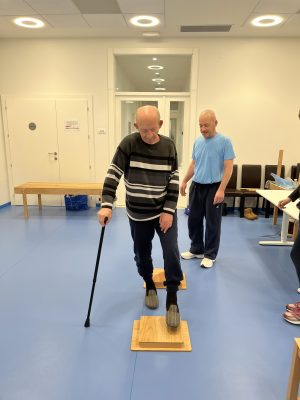Stroke (acute cerebrovascular accident)
 As a result of a stroke, oxygen-rich blood does not reach the given part of the brain, so its oxygen supply becomes problematic. This can have long-term consequences, which, depending on the affected brain area, include:
As a result of a stroke, oxygen-rich blood does not reach the given part of the brain, so its oxygen supply becomes problematic. This can have long-term consequences, which, depending on the affected brain area, include:
- hemiplegia, weakness (hemiplegia, hemiparesis), muscle tone disorder
- neglect (ignoring the affected page),
- balance, coordination problems,
- speech disorder (aphasia),
- post stroke dementia,
- incontinence.
These have a negative effect on the correct execution of movements, transportation, self-sufficiency and communication, and thus on everyday life. Depression is not uncommon either.
However, by taking advantage of the ability of the brain, neuroplasticity, we can achieve different degrees of improvement by conductive education. Thanks to the plasticity of the brain, the role of dead, damaged nerves is taken over by others, so a paralyzed arm can learn to move again. Rehabilitation started as early as possible is the key to improving movement, speech and cognitive abilities.